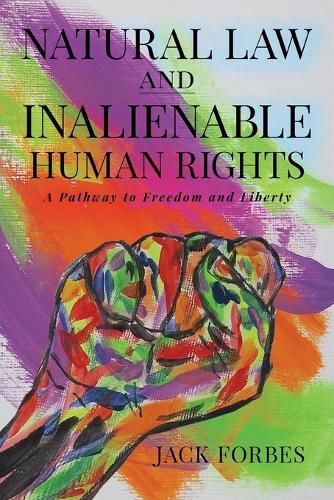Readings Newsletter
Become a Readings Member to make your shopping experience even easier.
Sign in or sign up for free!
You’re not far away from qualifying for FREE standard shipping within Australia
You’ve qualified for FREE standard shipping within Australia
The cart is loading…






This title is printed to order. This book may have been self-published. If so, we cannot guarantee the quality of the content. In the main most books will have gone through the editing process however some may not. We therefore suggest that you be aware of this before ordering this book. If in doubt check either the author or publisher’s details as we are unable to accept any returns unless they are faulty. Please contact us if you have any questions.
MAY A GOVERNMENT, OR EMPLOYER, CONSTRUCT A LEGALLY ENFORCEABLE RULE OR PRACTICE WHICH VIOLATES A PERSON'S NATURAL LAW RIGHTS OF PRIVACY AND LIBERTY?
This book discusses the written and unwritten boundaries of governmental, and employer, powers. In America, we employ constitutional rights such as due process, the right to be free from unreasonable searches and seizures, the right to be free of cruel and unusual punishment, the right of privacy and the right to life, liberty and the pursuit of happiness. We also have statutory laws, rules and regulations which protect us in employment and housing, for example. Some legal boundaries, however, vary to an extent from culture to culture, nation to nation. Nevertheless, certain boundaries are universally considered to be absolute.
What are the inalienable rights to life, liberty and the pursuit of happiness? What is the ultimate origin of such "natural law" for humans? Are legitimate boundaries of governmental (or employer) action definable in absolute terms, or is reference to historical events required in order to shape the concept of human rights? Are human rights the same as ethical duties to others? What role, if any, have world religions played in the origin and shaping of natural law? What use is there for natural law in the absence of an effective means of enforcement of the resulting human rights? Can nations legitimately subvert human rights under the auspices of national security interests, and if so, to what extent? Answers to these important questions are the focus and subject matter of NATURAL LAW AND INALIENABLE HUMAN RIGHTS and create A Pathway to Freedom and Liberty.
$9.00 standard shipping within Australia
FREE standard shipping within Australia for orders over $100.00
Express & International shipping calculated at checkout
This title is printed to order. This book may have been self-published. If so, we cannot guarantee the quality of the content. In the main most books will have gone through the editing process however some may not. We therefore suggest that you be aware of this before ordering this book. If in doubt check either the author or publisher’s details as we are unable to accept any returns unless they are faulty. Please contact us if you have any questions.
MAY A GOVERNMENT, OR EMPLOYER, CONSTRUCT A LEGALLY ENFORCEABLE RULE OR PRACTICE WHICH VIOLATES A PERSON'S NATURAL LAW RIGHTS OF PRIVACY AND LIBERTY?
This book discusses the written and unwritten boundaries of governmental, and employer, powers. In America, we employ constitutional rights such as due process, the right to be free from unreasonable searches and seizures, the right to be free of cruel and unusual punishment, the right of privacy and the right to life, liberty and the pursuit of happiness. We also have statutory laws, rules and regulations which protect us in employment and housing, for example. Some legal boundaries, however, vary to an extent from culture to culture, nation to nation. Nevertheless, certain boundaries are universally considered to be absolute.
What are the inalienable rights to life, liberty and the pursuit of happiness? What is the ultimate origin of such "natural law" for humans? Are legitimate boundaries of governmental (or employer) action definable in absolute terms, or is reference to historical events required in order to shape the concept of human rights? Are human rights the same as ethical duties to others? What role, if any, have world religions played in the origin and shaping of natural law? What use is there for natural law in the absence of an effective means of enforcement of the resulting human rights? Can nations legitimately subvert human rights under the auspices of national security interests, and if so, to what extent? Answers to these important questions are the focus and subject matter of NATURAL LAW AND INALIENABLE HUMAN RIGHTS and create A Pathway to Freedom and Liberty.